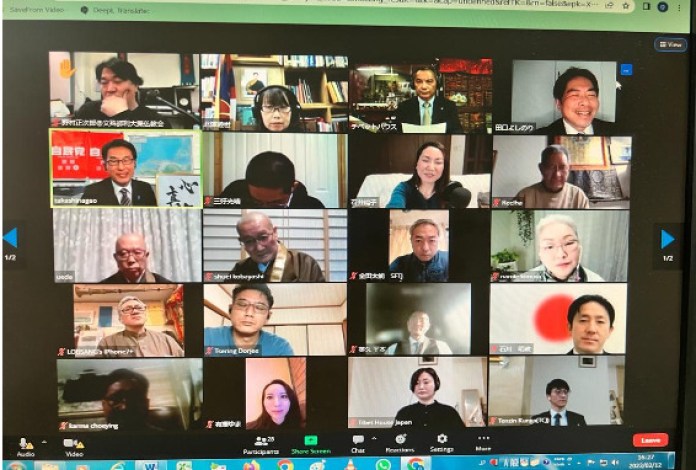As Commission deadline for implementation of discrimination case law of the Court of Justice of the EU approaches, Italy’s largest trade union calls on Minister for Universities to settle with non-national teaching staff
In its most recent initiative in defence of the rights of foreign language lecturers(Lettori) in Italian universities, FLC CGIL, Italy’s largest trade union, has written an open letter to Minister for Universities and Research, Anna Maria Bernini, calling on her to pay the full compensatory settlements due for decades of discriminatory treatment within the deadline of the 60 days given by the European Commission.
In its press release of 26 January, the Commission announced that it was moving infringement proceedings N.2021/4055 to the reasoned opinion stage and cautioned Italy to comply with the opinion within the two-month period prescribed or face referral of the case to the Court of Justice of the European Union(CJEU). The Commission opened the proceedings in September 2021 because of Italy’s failure to implement the CJEU ruling in favour of the Lettori in Case C-119/04.
The letter to Minister Bernini sketches the legal history of the Lettori in their battle for parity of pay, referencing the 4 victories won before the CJEU. These run from the first and seminal Allué case of 1989 to the Commission’s 2006 victory in its enforcement case against Italy for non-implementation of the earlier Commission v Italy ruling of 2001. A fifth parity of pay case before the CJEU may now follow should Italy fail to comply with the terms of the Commission’s reasoned opinion of January 2023.
“The time span encompassed within this brief legal history equates to 34 years,” writes FLC CGIL in its letter to Minister Bernini. The duration of Italy’s discrimination against the Lettori positions the case as the longest-running breach of the parity of treatment provision of the Treaty on record.
However, in light of Italy’s plans to limit the settlements due to Lettori to the years prior to 1995, the breach is likely to last even longer. In Case C-119/04 the Grand Chamber of the CJEU approved a last-minute Italian law of March 2004 which awarded Lettori a reconstruction of career from the date of first employment. In response, and in the most brazen of its attempts to evade the case law of the CJEU, Italy subsequently enacted the Gelmini law of 2010, a law which retrospectively interpreted the March 2004 law and read it to limit Italy’s liability to the Lettori for reconstruction of career only to the years prior to 1995.
On the point of law at issue, FLC CGIL comments:
“Scrutiny of Law n. 63 of March 2004 shows that it contains no provision to limit the reconstruction of career due to the Lettori under Case C-212/99 to the years prior to 1995. It follows therefore that the Court of Justice ruling in follow-on Case C-119/04 does not, or cannot, be read to condone such a limit. More seriously, it follows that the Gelmini Law’s retrospective interpretation of Law n. 63 of March 2004 seeks to undo the case law of the European Court of Justice, the pinnacle institution of the European Union.”
On December 13 last Lettori from universities all over Italy staged a demonstration on Viale Trastevere in the vicinity of Minister Bernini’s offices on the left bank of the Tiber in Rome. The demonstration was to protest against the fact that Italy continues to deny Lettori their Treaty right to parity of treatment. Just a short walking distance from Viale Trastevere, on the right bank of the Tiber, is the Campidoglio. There, as the letter very pointedly reminds Minster Bernini, “in the Sala dei Conservatori the right to parity of treatment was signed into law as a provision of the historic Treaty of Rome on 25 March 1957”.
The FLC CGIL letter is particularly critical of the fact that the employers responsible for the discrimination against the non-national Lettori should be universities. “That the provenance of the discrimination should be universities, all with Faculties of Jurisprudence which teach EU law and therefore ought to be able to comprehend the rulings of the CJEU condemning discrimination against Lettori in the Italian universities, is most regrettable”, the letter states.
In Case C-119/04, the Commission recommended that a daily fine of €309,750 be imposed on Italy for its persistent discrimination against Lettori. The last-minute law introduced in March 2004 conceded that Lettori had a right to an uninterrupted reconstruction of their carers from the date of first employment, with the result that Grand Chamber of the CJEU spared Italy the recommended fines. However, following the handing-down of the sentence the provisions of the law were never subsequently enforced.
Commenting on the possibility of a further case being referred to the CJEU for non-implementation of the ruling in Case C-119/04, the FLC CGIL letter points out:
“In such a scenario lawyers for the Permanent Representation would have to explain to the CJEU, why the Law of March 2004, which spared Italy the daily fines of EUR 309, 750 recommended by the European Commission, was never subsequently implemented as interpreted by the CJEU. “
The infringement proceedings were preceded by a pilot procedure, a mechanism introduced to resolve disputes amicably with member states. Over a 10-year period it markedly failed to achieve its purpose. The move to infringement proceedings proper is credited to a nationwide census of discriminatory conditions in Italian universities conducted by Asso. CEL.L, a La Sapienza based union and an official complainant in the infringement proceedings, and FLC CGIL, Italy’s largest trade union. The Census results conclusively documenting the non-payment of the settlements due under the ruling in Case C-119/04 were deposited with the Commission.
Undoubtedly the most influential parliamentary question on the Lettori issue placed to the Commission during the mandate of the present European Parliament is the question submitted by Clare Daly and co-signed by 7 other Irish MEPs. The FLC CGIL letter to Minister Bernini cites the wording in the parliamentary question which focuses on the reciprocal responsibilities which come with the benefits of EU membership.
“Italian universities receive generous funding from the EU. Italy has received the biggest share of the Recovery Fund. Surely, the ethic of reciprocation demands that Italy obey the rule of law and implement the most recent CJEU ruling in favour of the lettori: case C‑119/04.”
John Gilbert is National Lettori Coordinator for FLC CGIL. A lettore at the University of Florence, his well-received speech to his colleagues at the protest outside Minister Bernini’s offices in December covered many of the points included in the FLC CGIL letter to the minister.
Mr Gilbert said:
“While the Ministry of Universities is located close to the venue where the historic Treaty of Rome was signed, the discriminatory policies against Lettori pursued by the ministry and the Italian government since the 1980s are worlds apart from the provision of the Treaty of Rome, which enshrines the principle of parity of treatment throughout the Union. Through updates of the nation Census we undertook with Asso. CEL.L we will monitor whether the settlements due under the ruling in Case C-119/04 are in fact made and will communicate our findings to Brussels”.
The letter to Minister Bernini has been copied to Commissioner for Jobs and Social Rights, Nicolas Schmit, and to Commission President Ursula von der Leyen, who has taken a personal interest in the Lettori case. It will now be translated into all the mother tongues of the Lettori working in the Italian universities and handed in at their respective embassies in Rome.
















